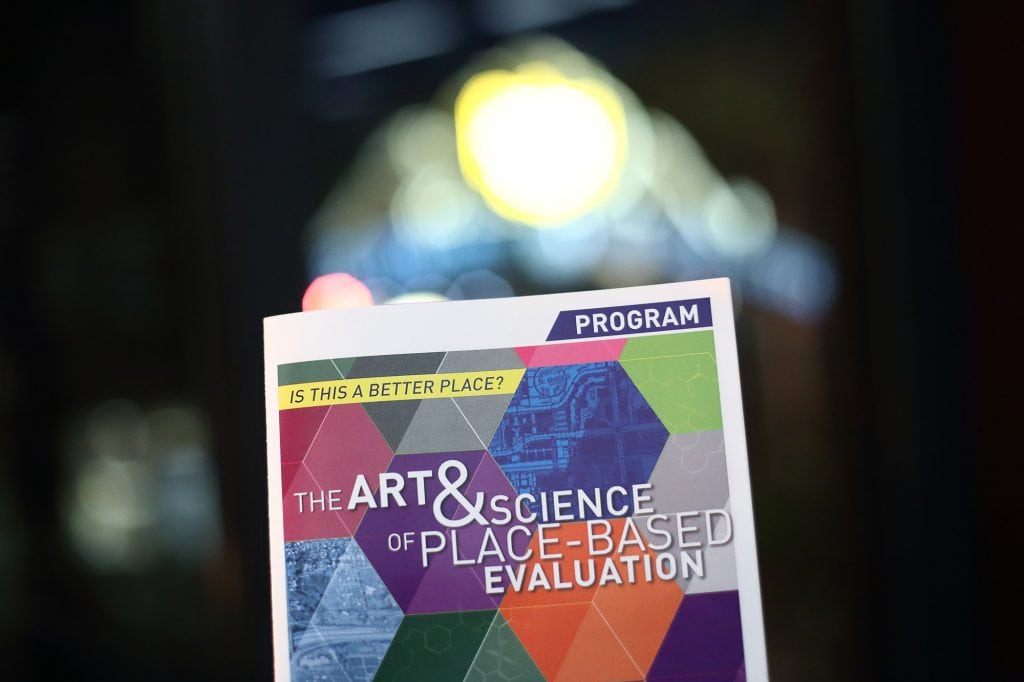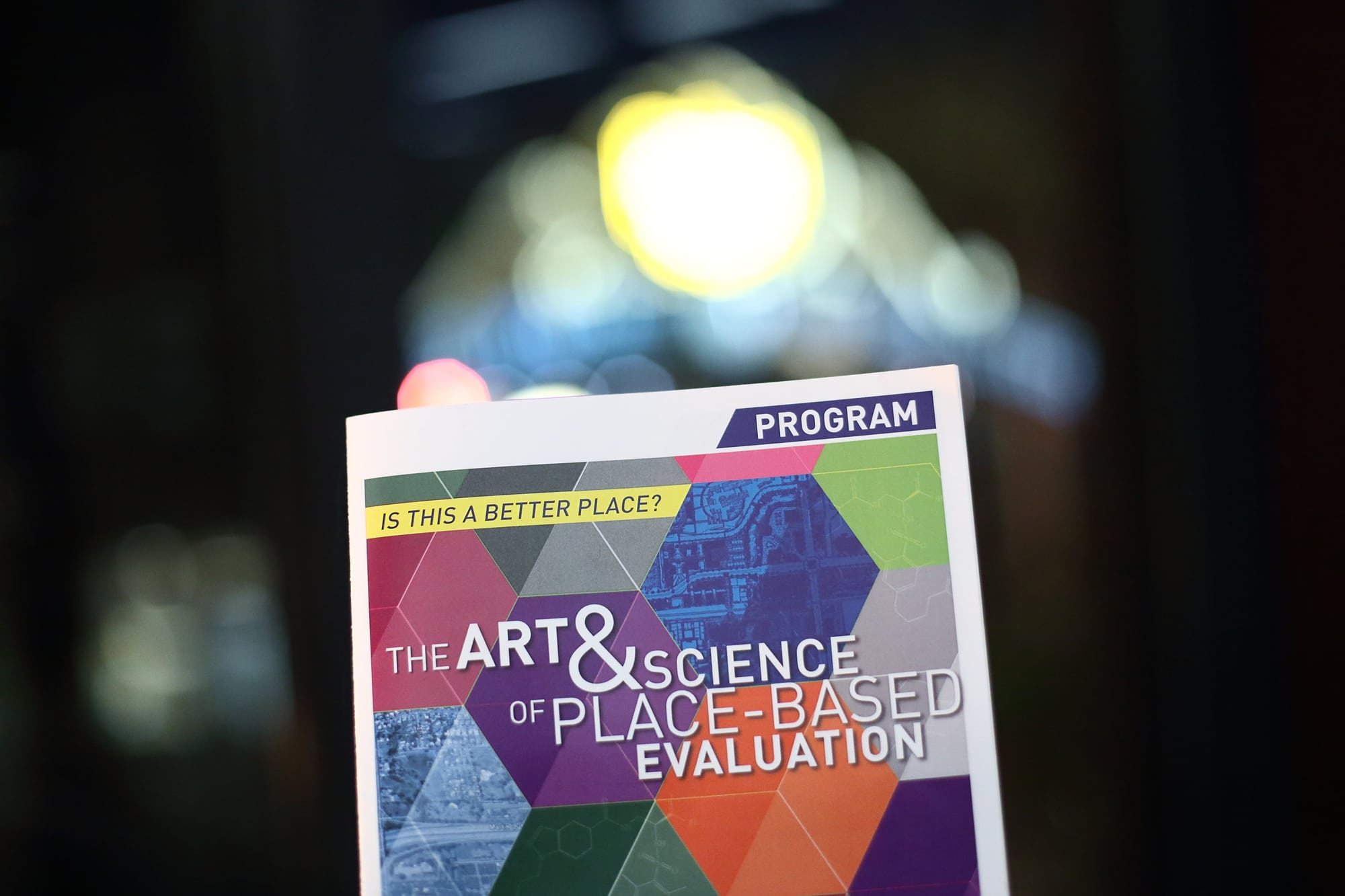
 How do organizations working on place-based initiatives even prepare to evaluate their work? On October 5th and 6th, I will join a group of evaluators, community partners, and funders from around the country to discuss the art and science of place-based evaluation. The convening builds on several earlier events focused on the importance of “place” in philanthropic investments, including the Center of Philanthropy and Public Policy’s National Forum on Place-based Initiatives and the Aspen Institute’s Promising Practices Conference. This time around, the discussion will shift to how evaluation can support the various stages of place-based initiatives.
How do organizations working on place-based initiatives even prepare to evaluate their work? On October 5th and 6th, I will join a group of evaluators, community partners, and funders from around the country to discuss the art and science of place-based evaluation. The convening builds on several earlier events focused on the importance of “place” in philanthropic investments, including the Center of Philanthropy and Public Policy’s National Forum on Place-based Initiatives and the Aspen Institute’s Promising Practices Conference. This time around, the discussion will shift to how evaluation can support the various stages of place-based initiatives.
In advance of the convening, some participants are sharing their thoughts about this issue. My colleague Meg Long of Equal Measure kicked off the conversation with a blog post about connecting community change to systems change.
For my part, I will be facilitating a session on “getting ready” for place-based work. Beyond conducting assessments and planning studies, what does it really mean to be “ready”? How do communities and funders “get ready” to partner and engage in community change? How do issues of power and equity influence roles, decisions, expectations, and the terms of engagement?
These are all tough questions but critical to the success and sustainability of community change efforts. In preparation for this session, I want to share two lessons about the “early stages” of evaluating and supporting place-based work based on my experience at Harder+Company.
- Foster community ownership: Place-based initiatives focus on high need communities challenged by poverty, crime, and unemployment. Despite those challenges, most of these communities are home to local leaders, nonprofit organizations, and concerned advocates who are committed to making their communities stronger. Engaging residents as owners, leaders, and co–developers of a place-based initiative from the beginning honors the assets already in a community. It also helps to strengthen the capacity of communities that have historically had limited influence over decisions that directly impact their lives. Place-based funders, evaluators, and technical assistance providers can all contribute to community ownership by supporting and coaching – not leading or implementing – local stakeholders during the early planning and implementation phase. Supporting and cultivating local leaders requires coordination and a shared commitment to capacity building. It also requires time, patience, and tolerance for taking risks and making mistakes. Place-based funders, evaluators, and technical assistance providers can all contribute to community ownership by supporting and coaching – not leading or implementing – local stakeholders during the early planning and implementation phase. Supporting and cultivating local leaders requires coordination and a shared commitment to capacity building. It also requires time, patience, and tolerance for taking risks and making mistakes.
- Create a culture of learning and reflection: Place-based initiatives are – at their core – a continuous process of testing theories, learning, adapting, and building capacity to realize visionary goals. Embedding learning into the DNA of place-based work means being intentional about creating opportunities to reflect and translate learning into knowledge, improved practice, and results. Even with a commitment to learning, a funder’s organizational culture and practices can either facilitate or undermine this critical aspect of place-based work. And the challenge is not just for funders. Dynamics in the community – including lack of trust and underlying tensions about equity and power– can stifle attempts to create open dialogue that values diverse and divergent points of view. We have found that developmental evaluation is an ideal fit for place-based initiatives, particularly during these formative stages. We have used developmental evaluation to support stakeholders by surfacing emergent issues and themes in real-time, facilitating reflective conversations, and helping stakeholders make meaning of their work. With more structured venues and intentional opportunities to pause and reflect, funders and community stakeholders can take stock, learn from challenges, and re-calibrate their approach.
While evaluating place-based initiatives is rarely simple or easy, we know that these early-stage considerations can help ensure success. We hope to see some of you in San Diego for two thought-provoking days with some of the nation’s leading evaluators, advocates, and funders. Our discussions are sure to challenge the field and further explore the strategic role evaluation can play to support place-based initiatives as they mature and evolve.
